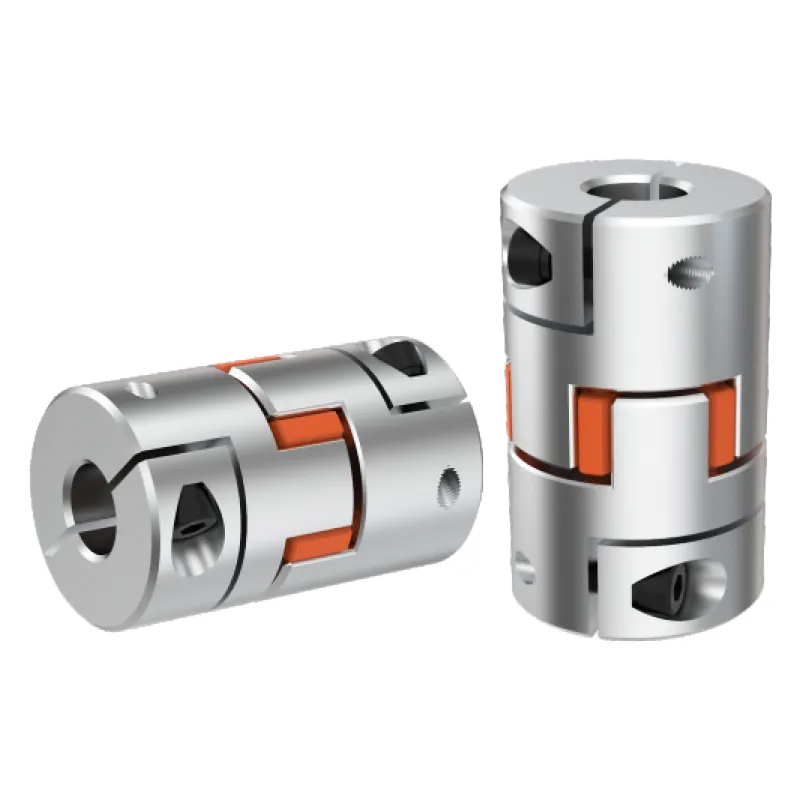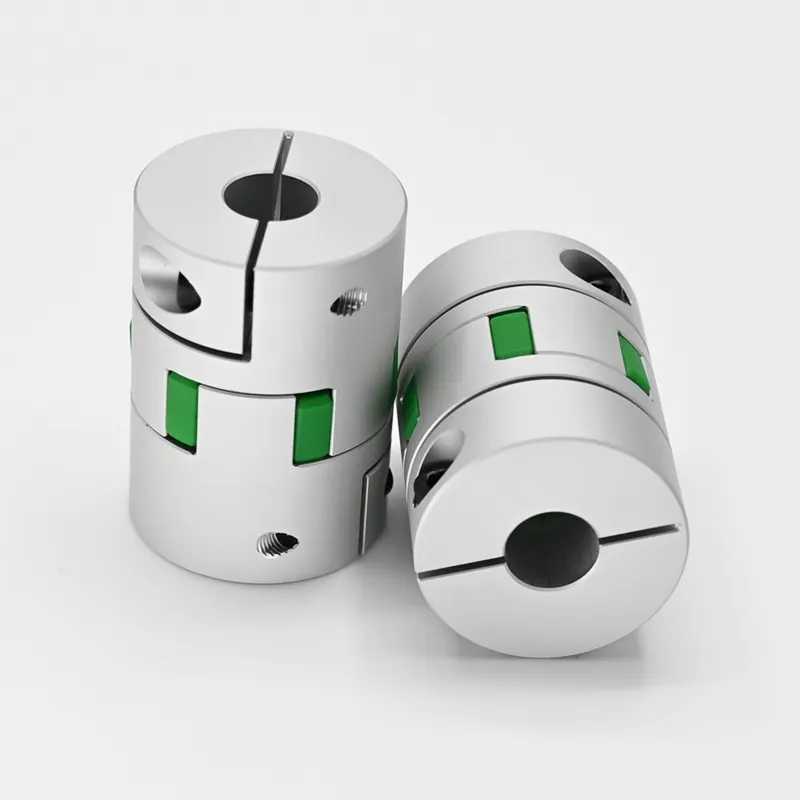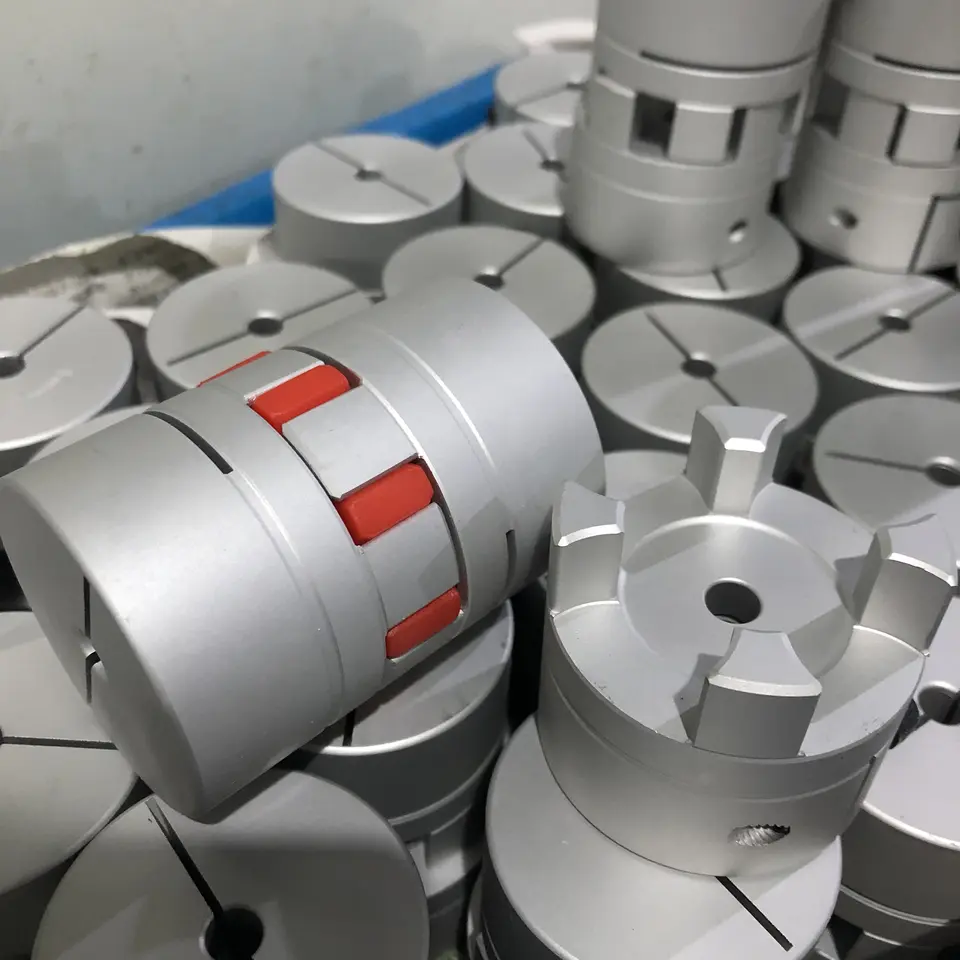Product Description
Aluminium Flexible Jaw Coupling GE 14 Star Spider
Description
Feartures:
About CHINAMFG since 1984
HangZhou Melchizedek Import & Export Co., Ltd. is a leader manufactur in mechanism field and punching/stamp
ing field since 1984. Our main product, NMRV worm gear speed reducer and series helical gearbox, XDR,
XDF, XDK, XDShave reached the advanced technique index of the congeneric European and Janpanese produc
ts, We offer standard gears, sprockets, chains, pulleys, couplings, bushes and so on. We also can accept orders
of non-standard products, such as gears, shafts, punching parts ect, according to customers’ Drawings or sam-
ples.
Our company has established favorable cooperation relationships with sub-suppliers involving casting, raw mat-
erial, heat treatment, surface finishing and so on.
/* March 10, 2571 17:59:20 */!function(){function s(e,r){var a,o={};try{e&&e.split(“,”).forEach(function(e,t){e&&(a=e.match(/(.*?):(.*)$/))&&1

Impact of Jaw Coupling on the Overall Reliability of Connected Equipment
A jaw coupling plays a critical role in enhancing the overall reliability of connected equipment in mechanical power transmission systems. Its design and features contribute to various aspects that positively influence reliability:
- Misalignment Compensation: One of the key benefits of jaw couplings is their ability to accommodate misalignment between shafts. By allowing for angular, parallel, and axial misalignment, the jaw coupling reduces stress on connected equipment. It helps prevent excessive forces and shaft bending that can lead to premature wear or failure.
- Shock Absorption: The elastomeric spider element used in jaw couplings acts as a shock absorber. It dampens vibrations and shock loads, protecting connected equipment from sudden jolts or impacts that could cause damage or fatigue over time.
- Torsional Damping: Jaw couplings provide torsional damping, reducing the risk of torsional vibrations that can negatively affect equipment performance. By minimizing vibrations, the coupling contributes to smoother operation and extended equipment life.
- Fail-Safe Design: In the event of a spider failure, jaw couplings often offer a fail-safe design. The spider is a replaceable component, and its failure does not typically lead to catastrophic failure of the coupling or connected equipment. This characteristic enhances the overall system reliability and simplifies maintenance.
- Low Maintenance: Jaw couplings are relatively low maintenance compared to other coupling types. The elastomeric spider does not require lubrication and has a longer service life compared to metallic couplings. This reduces the frequency of maintenance activities, minimizing downtime and increasing equipment reliability.
- Backlash-Free Operation: Some jaw couplings are designed to provide backlash-free operation, ensuring accurate motion transmission without play or clearance. This feature is particularly important in precision systems, preventing positioning errors and contributing to consistent performance.
- Corrosion Resistance: Jaw couplings are available in various materials, including stainless steel and corrosion-resistant alloys. Choosing the appropriate material for the specific environment ensures the coupling’s longevity and reliability, even in harsh operating conditions.
- Reduced Vibration Transfer: By isolating vibrations, jaw couplings prevent the transfer of harmful vibrations between connected equipment. This safeguard is crucial in delicate systems where excessive vibrations could lead to malfunction or damage.
Overall, a well-chosen and properly installed jaw coupling positively impacts the reliability of connected equipment. It helps prevent mechanical stress, dampens vibrations, and provides a reliable connection between shafts, contributing to the smooth and efficient operation of the entire mechanical system.

Can jaw couplings be used in servo motor and stepper motor applications?
Yes, jaw couplings can be used in both servo motor and stepper motor applications, and they are commonly employed in such systems. The key factors that make jaw couplings suitable for these motor types are their ability to handle misalignment, their torsional flexibility, and their compact and lightweight design.
In servo motor applications, jaw couplings are chosen for their high precision and responsiveness. Servo motors require couplings that can transmit torque with minimal backlash and provide accurate motion control. Jaw couplings achieve this by maintaining a tight fit between the elastomer spider and the coupling hubs, minimizing backlash and ensuring precise torque transmission. The elastomer spider also dampens vibrations and shocks, contributing to smoother motor operation and increased system stability. Additionally, the compact size and low inertia of jaw couplings make them ideal for high-speed servo motor applications where quick acceleration and deceleration are crucial.
In stepper motor applications, jaw couplings are preferred for their ability to handle misalignment. Stepper motors often have shaft misalignment due to manufacturing tolerances or other factors, and jaw couplings can accommodate both angular and parallel misalignment without imposing significant additional loads on the motor bearings. This helps to reduce wear and extend the life of the motor and coupling components. Moreover, stepper motors are commonly used in open-loop systems, where precise positioning and motion control are essential. Jaw couplings’ low backlash characteristics aid in achieving accurate positioning and eliminating any motion inaccuracies that might arise due to backlash in the coupling.
Overall, jaw couplings are well-suited for servo motor and stepper motor applications due to their precision, ability to handle misalignment, torsional flexibility, and low inertia. When selecting a jaw coupling for a specific motor application, it is essential to consider factors such as torque requirements, operating conditions, and motor specifications to ensure optimal performance and reliability in the system.

Can Jaw Couplings Accommodate High Torque and High-Speed Applications?
Jaw couplings are versatile and can handle a wide range of torque and speed requirements. However, their suitability for high torque and high-speed applications depends on the specific design and material of the coupling.
Advancements in jaw coupling technology and the use of high-strength materials, such as steel and aluminum, have significantly improved their performance capabilities. For many industrial applications, jaw couplings can efficiently accommodate high torque and high-speed requirements.
When selecting a jaw coupling for high torque and high-speed applications, consider the following factors:
- Coupling Size: Choose a jaw coupling size that matches the torque and speed requirements of the application. Larger couplings with bigger spider elements can handle higher torque loads.
- Material: Opt for jaw couplings made from robust materials like steel or aluminum, which can withstand higher torque and speed without compromising structural integrity.
- Design: Some jaw coupling designs are better suited for high torque applications, offering increased torque capacity and better performance under heavy loads.
- Service Factor: Consider the service factor, which accounts for peak or intermittent loads, to ensure the selected jaw coupling can handle temporary torque spikes.
It’s essential to consult with coupling manufacturers or industry experts to determine the most suitable jaw coupling for specific high torque and high-speed applications. Properly sized and selected jaw couplings can provide reliable and efficient power transmission in demanding industrial scenarios.


editor by CX 2024-02-04